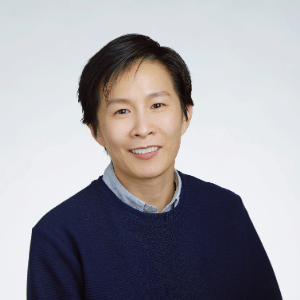Events
Jun 17, 2025
Seminar (2025-06-17)
School of Biomedical Sciences cordially invites you to join the following seminar:
Speaker: Dr. Ya-Wen Chen, Isidore Friesner Associate Professor of Otolaryngology, Cell, Developmental and Regenerative Biology, and Pathology, Icahn School of Medicine, Mount Sinai
Talk Title: Healing the airway: human pluripotent stem cell-based tracheal regeneration
Date: 17 June 2025 (Tuesday)
Time: 2:00 pm – 3:00 pm
Venue: Seminar Room 4, G/F, Laboratory Block, 21 Sassoon Road
Host: Professor Mu He
Biography

Dr. Ya-Wen Chen is the Isidore Friesner Associate Professor of Otolaryngology, Cell, Developmental and Regenerative Biology, and Pathology at the Icahn School of Medicine at Mount Sinai, where she also serves as Scientific Director of the Institute for Airway Sciences. She co-directs the Center for Epithelial and Airway Biology and Regeneration and leads the Developmental Origins of Health and Disease Biorepository.
Dr. Chen’s research lies at the intersection of stem cell biology, regenerative medicine, and translational immunology, with a focus on the development and repair of the human respiratory system. Her laboratory has developed a unique platform for generating lung and airway epithelial cells from human pluripotent stem cells at a scale sufficient for adult trachea and lung coverage. This platform has enabled new approaches to airway reconstruction, including the use of bioengineered tracheas seeded with patient-specific cells.
Abstract
The treatment of severe tracheal diseases remains a formidable challenge in clinical medicine, with no established standard therapy currently available. While allogeneic or synthetic tracheal transplants have been explored, these approaches are limited by donor scarcity and the high risk of surgical complications. Tissue-engineered tracheal replacement offers a promising alternative, yet the inability to efficiently expand and differentiate primary airway epithelial cells has hindered progress. Here, we demonstrate that bipotential lung progenitor cells derived from human pluripotent stem cells can overcome these barriers. When seeded onto decellularized mouse and human tracheal scaffolds ex vivo, these progenitors differentiated into a spectrum of airway epithelial cell types, including basal, secretory, and multiciliated cells, forming a structured, pseudostratified epithelium. Upon transplantation into a mouse model of tracheal injury, the cells rapidly engrafted and re-epithelialized the injured area. These findings underscore the regenerative potential of bipotential lung progenitors and support their application in next-generation tracheal replacement strategies.
All are welcome.

